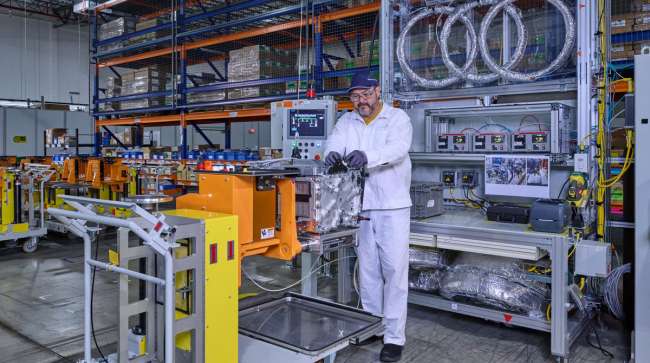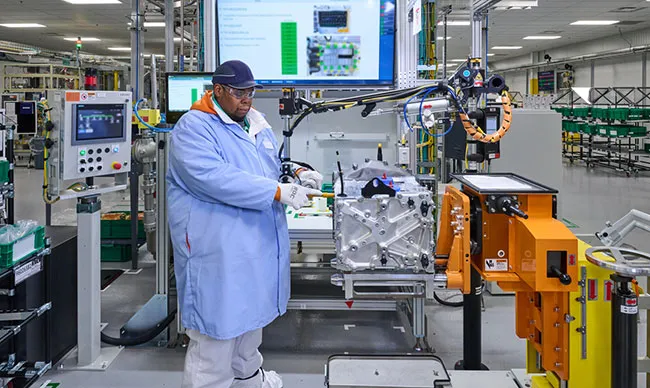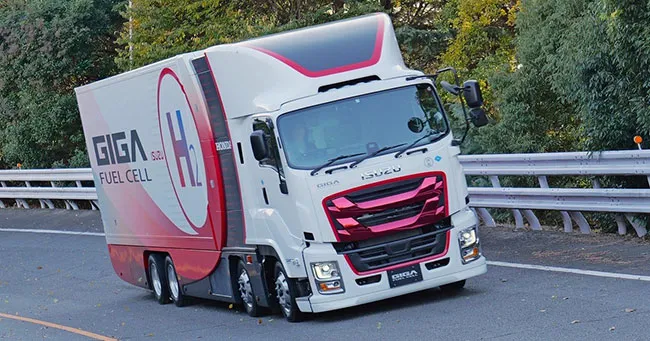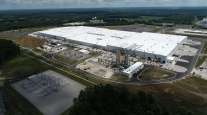Staff Reporter
GM, Honda Hydrogen Fuel Cell JV Begins Commercial Production

[Stay on top of transportation news: Get TTNews in your inbox.]
A joint venture between General Motors and Honda began commercial production Jan. 25 of hydrogen fuel cells in Brownstown, Mich., aimed at the commercial vehicle market.
The start of production at the joint venture, Fuel Cell System Manufacturing (FCSM), is the culmination of a decade’s work on development of fuel cell systems. The automotive behemoths first teamed up in 2013. FCSM was formed in 2017.
“We integrated the strengths of Honda and GM to create the most capable production system at this joint venture,” said Tetsuo Suzuki, FCSM vice president.
“Our new fuel cell system is at the core of Honda hydrogen technology and our strategy to expand the range of applications that use hydrogen to facilitate the decarbonization of society,” said Jay Joseph, vice president of sustainability and business development for American Honda Motor Co.

Manufacturing has begun at Fuel Cell Systems Manufacturing in Brownstown. (Santa Fabio for General Motors)
“This is not simply a choice between battery-electric or hydrogen fuel cell technology, but selecting the right energy source, in the right place, for the right purpose, to achieve carbon neutrality as quickly and efficiently as possible,” he said.
Honda expects FCSM to pull in initial sales of 2,000 units per year and then expand uptake in stages, it said.
Styling FCSM as the first large-scale manufacturing joint venture for building automotive fuel cells, the partners already have fingers in multiple heavy-duty trucking hydrogen fuel cell electric vehicle (FCEV) pies.
GM in December teamed up with Autocar Industries to develop a range of hydrogen FCEV heavy-duty vocational trucks.
The first vehicles in the GM-Autocar partnership are expected to roll off the production line in 2026 at the latter company’s Birmingham, Ala., manufacturing plant.
Hydrogen FCEV-powered cement mixers, roll-off and dump trucks are set to be the first produced, followed by refuse trucks and terminal tractors, the partners said.
Ben Gardiner, a cybersecurity expert at the National Motor Freight Traffic Association, shares practical, effective strategies to shield your business. He offers insights into operating systems and a comprehensive guide to cyber resilience. Tune in above or by going to RoadSigns.ttnews.com.
Autocar currently offers four models — the ACX cabover severe-duty truck, the ACTT terminal tractor, the DC-64 conventional severe-duty truck and the ACMD medium- and heavy-duty cabover.
The Hydrotec fuel cells the Autocar trucks will utilize comprise 300 individual hydrogen fuel cells, with the current generation able to produce 77 kilowatts of net power. Multiple power cubes can be arrayed in a vehicle for even higher power ratings, GM and Autocar said in December. The cells will be built at the Brownstown facility.
GM is also working with Navistar on a hydrogen FCEV version of the Lisle, Ill.-based company’s International RH Series.
The two teamed up in 2021 in GM’s first commercial vehicle partnership for Hydrotec. Navistar said at the time it expected the tractor to have a range in excess of 500 miles and a refueling time of less than 15 minutes. Navistar was not immediately available for comment Jan. 29 when asked for a progress update.

Giga fuel cell being driven on a closed test course prior to the start of public road testing.(Honda)
Honda, meanwhile, said Jan. 25 it is preparing a proof-of-concept Class 8 hydrogen fuel cell truck in the U.S. and is in talks with potential customers, without providing any more details.
The company, which says it has been conducting research and development on hydrogen technologies and FCEVs for more than 30 years, already has a Japanese heavy-duty hydrogen FCEV truck: the Giga Fuel Cell.
Unveiled at the Japan Mobility Show 2023 in late October and early November, the truck was developed in partnership with Isuzu Motors Ltd.
The partners began testing a prototype model on public roads in Japan in December, and plan to introduce a production model in 2027, Honda said.
In the meantime, Honda plans to launch an FCEV version of its CR-V compact sport utility vehicle using FCSM products later in 2024. The SUV will be built in Marysville, Ohio. Upon launch, it will be the only FCEV passenger vehicle made in America, according to Honda.
Honda sees four core uses for FCSM’s output: FCEVs, commercial fuel cell vehicles, stationary power stations and construction machinery. The company said it is seeking “external” business opportunities for its share of the joint venture’s output.
Want more news? Listen to today's daily briefing below or go here for more info:





